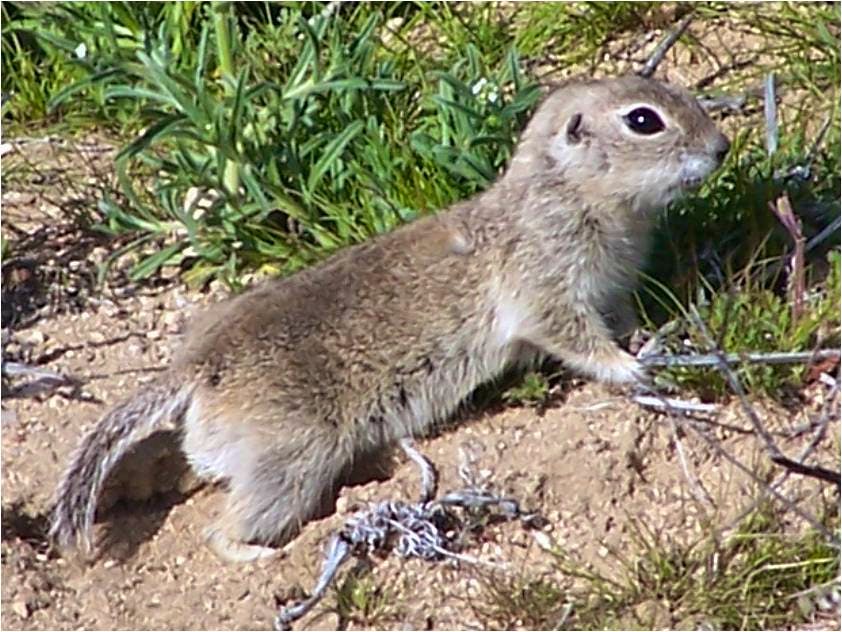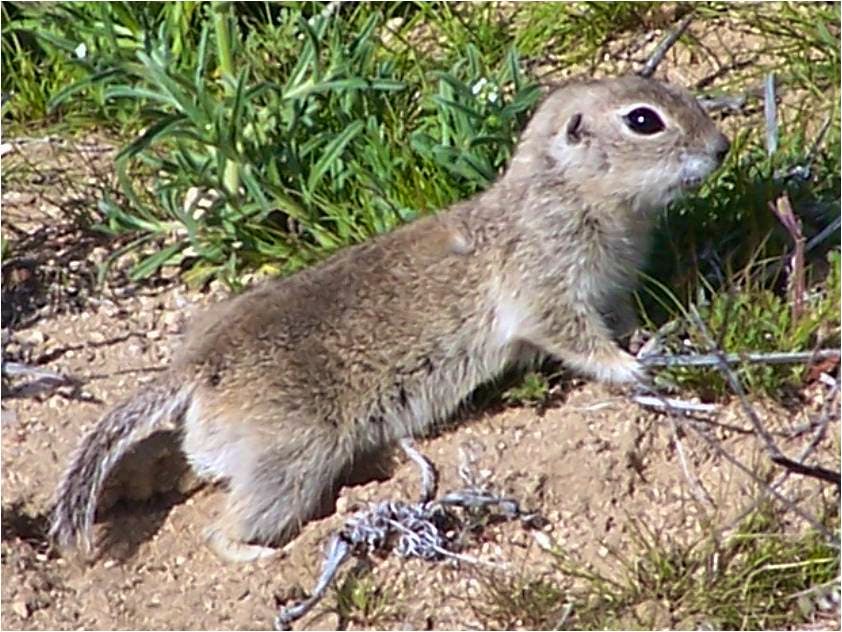A petition to list the Mohave ground squirrel as threatened and to designate critical habitat under the Endangered Species Act was submitted today to the Secretary of Interior by Defenders of Wildlife, Desert Tortoise Preserve Committee, Mohave Ground Squirrel Conservation Council and Dr. Philip Leitner. This marks the beginning of a 90-day federal review that will determine whether the species, native to California, warrants federal protection under the ESA.
“More than 50 years of efforts to conserve Mohave ground squirrel habitat have been persistently thwarted by intensive land uses authorized by local, state and federal agencies, leading to significant and ongoing loss of its habitat,” said Jeff Aardahl, senior California representative at Defenders of Wildlife. “The Mohave ground squirrel is on course to lose more than half its remaining habitat in less than a decade unless the federal government steps in to change its course.”
The Mohave ground squirrel only exists in California’s western Mojave Desert and was one of the first species listed under the California Endangered Species Act in 1971. The species no longer exists in over 40% of its historical range – mainly due to development expansion and exacerbated by climate change.
According to research by the U.S. Geological Survey and other biologists, up to 57% of Mohave ground squirrel habitat will become unsuitable by 2030 and up to 84% by 2080 due to temperature and drought impacts on desert vegetation.
“Continued development and the impacts of climate change resulting in significant loss of suitable habitat demands that the Mohave ground squirrel receives federal protection,” said Ron Berger, president of the Desert Tortoise Preserve Committee.
Despite recognizing habitat loss for the species, local, state and federal agencies continue to allow development, such as energy projects, new and ongoing off-road vehicle recreational impacts, and military base expansion and training within the 60% of remaining range, including in key population areas.
“Recent presence/absence trapping summaries by Dr. Phil Leitner have shown that the Mohave ground squirrel’s range is shrinking in all directions except from the northwest, and that hybridization with the common round-tailed ground squirrel is threatening the species from the east as far west as Harper Lake Road. This new information since the previous two petitions provides evidence that federal listing is warranted,” said Ed LaRue, secretary of the Mohave Ground Squirrel Conservation Council. “With federal protections under the Endangered Species Act, proactive conservation of the species on our large military bases within the range – particularly Edwards Air Force Base, Fort Irwin and China Lake Naval Air Weapons Station – is necessary to avoid extinction.”
The conservationists’ submission is the third Mohave ground squirrel ESA listing petition to the Secretary of Interior in the last 30 years. Previous attempts were unsuccessful as the U.S. Fish and Wildlife Service determined that the species was not likely to become endangered within the foreseeable future throughout all or a significant portion of its range and dismissed the threat of climate change.
“Over the past several decades, I have carried out extensive Mohave ground squirrel field studies and documented serious habitat loss in the southern and eastern portions of the species’ range. Unfortunately, this pattern has continued with the ongoing expansion of U.S. Army training activities over a large area of excellent habitat,” stated Dr. Philip Leitner, research biologist and co-petitioner. “I recently repeated a large-scale camera study over much of the historical range and discovered that the species is no longer present in many areas where it was widely distributed in 2011-12. Protection under the Endangered Species Act of 1973 is urgently needed.”
For over 75 years, Defenders of Wildlife has remained dedicated to protecting all native animals and plants in their natural communities. With a nationwide network of nearly 2.1 million members and supporters, Defenders of Wildlife is a leading advocate for innovative solutions to safeguard our wildlife for generations to come. To learn more, please visit https://defenders.org/newsroom or follow us on X @Defenders.
Media Contact
News

Defenders Receives Advocacy Organization of the Year Award





